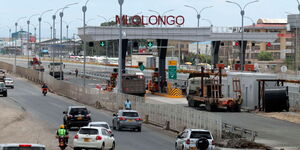Eldoret City residents on Wednesday, November 13, took to the streets to protest the 300 per cent increase in water tariffs without notice.
According to the residents, Eldoret Water and Sanitation Company (Eldowas), which manages water in the county, increased the prices without consulting which has left many irate.
“They should have sent us SMSs the way they send us SMSs to pay our water bill every month. They should have messaged the real stakeholders and asked us to participate, not bringing in outside forces to pass laws they are not sure about,” one protestor opined.
The angry residents told the press that their pleas to bring down the tariffs fell on deaf ears as the company told them that Eldoret had transformed into a city and thus the hefty charges.
However, some of the protestors did not believe this should have been the case as the 300 per cent increase had led to some residents paying more for their water bill than their rent.
The sewage price has also been set at 75 per cent of the water bill further deepening the crisis for some residents who find it hard to afford the steep prices.
“Does it mean that now that it is a city all prices go up? We need to attract investors. How do we attract investors if the water bill has gone so high that most of us will not be able to sustain our lives?” another asked.
Following this increase, several residents noted that several other services in the city including the food industry had become increasingly expensive, and the residents argue that this is making the city one of the most expensive to live in in Kenya.
“When we visit hotels and restaurants, they are also complaining about the bills and they have said they will pass it on to the consumer so we might start paying double and triple for food,” another resident stated.
A representative of People Living with Disabilities (PWDs) also shared the implications of this new development to PWDs who mostly rely on cash transferred from the government, noting that the hile would be detrimental to their standard of living.
The residents went further to state that the most logical position would have been to bring the price down first in order to attract investors and if that was not tenable, then the increase should be reduced from 300 per cent to a lower number.
After an unsuccessful public participation where residents failed to reach a resolution with the company officials, the residents resolved that they would have to take the matter to court and see to it that their grievances were heard.
“We are going to organise ourselves and fundraise to take the matter to court. The gazette notice has to be suspended and then we will talk and arrive at an amicable figure. We want the town to grow but you cannot come and affect people to the extent that people are moving out of their houses.”












